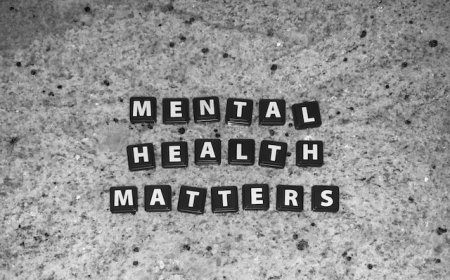The Connection Between Mental Health and Physical Health: Integrating Holistic Care Models
Exploring the Benefits of Holistic Care for Mental and Physical Health. Discover the powerful connection between mental and physical health, and learn how integrating holistic care models can improve overall wellbeing and promote a balanced lifestyle.

Introduction
The connection between mental health and physical health is a topic that has gained significant attention in recent years. As our understanding of the mind-body connection deepens, the importance of incorporating holistic care models into healthcare practices is becoming evident. This article explores the relationship between mental and physical health, the benefits of holistic care, and the value of integrating these care models into mainstream healthcare systems. By promoting a balanced approach to mental and physical wellbeing, holistic care models offer a comprehensive and effective path to overall health.
The Mind-Body Connection
The connection between mental and physical health is a complex and multidirectional relationship. Poor mental health can lead to physical health issues, and vice versa. For example, chronic stress can contribute to conditions such as heart disease, diabetes, and a weakened immune system. Similarly, physical health issues, such as chronic pain or illness, can have a significant impact on mental wellbeing, increasing the risk of anxiety and depression.
Holistic care models recognize the interconnectedness of mental and physical health and aim to address both aspects simultaneously. By treating the whole person rather than focusing on individual symptoms, holistic care encourages a more balanced approach to health and wellbeing.
The Benefits of Holistic Care
Integrating holistic care models into healthcare practices offers numerous benefits to both patients and providers. Some of the key advantages of holistic care include:
-
Improved patient outcomes: By addressing the mind and body as a whole, holistic care models can lead to better overall health outcomes. Patients often experience improvements in both their mental and physical symptoms, leading to a higher quality of life.
-
Enhanced patient-provider relationships: Holistic care encourages providers to take a more comprehensive approach to patient care, fostering stronger connections and better communication between patients and their healthcare team.
-
Greater emphasis on prevention: Holistic care models often focus on promoting overall wellbeing and preventing illness, rather than simply treating existing conditions. This proactive approach can help patients maintain better long-term health.
-
Reduced healthcare costs: By addressing the root causes of both mental and physical health issues, holistic care can lead to fewer hospital visits and lower overall healthcare costs.
Integrating Holistic Care Models into Healthcare Systems
As the benefits of holistic care become increasingly clear, there is a growing demand for the integration of these models into mainstream healthcare systems. This can be achieved through a variety of approaches, including:
-
Collaborative care: Combining the expertise of mental health professionals, primary care providers, and other healthcare specialists in a collaborative care model can lead to more comprehensive and effective treatment plans.
-
Telehealth services: Expanding access to mental health services through telehealth platforms can help bridge the gap between physical and mental healthcare, offering patients a more seamless and convenient healthcare experience.
-
Education and training: Ensuring healthcare professionals are adequately educated and trained in holistic care practices is essential for the successful integration of these models into healthcare systems.
-
Patient-centered care: Focusing on the individual needs and preferences of each patient is a key aspect of holistic care. By prioritizing patient-centered care, healthcare providers can better support the overall wellbeing of their patients.
Conclusion
The connection between mental health and physical health is a crucial aspect of overall wellbeing that cannot be overlooked. By integrating holistic care models into healthcare practices, providers can address the complex interplay between mental and physical health, leading to improved patient outcomes, stronger patient-provider relationships, and a more balanced approach to healthcare. As we continue to explore the benefits of holistic care, it's essential to prioritize the integration of these models into mainstream healthcare systems in order to promote a more comprehensive and effective approach to overall health and wellbeing.
Disclaimer: The image(s) featured in this article are for illustrative purposes only and may not directly depict the specific concepts, situations, or individuals discussed in the content. Their purpose is to enhance the reader's understanding and visual experience. Please do not interpret the images as literal representations of the topics addressed.
What's Your Reaction?












































































































